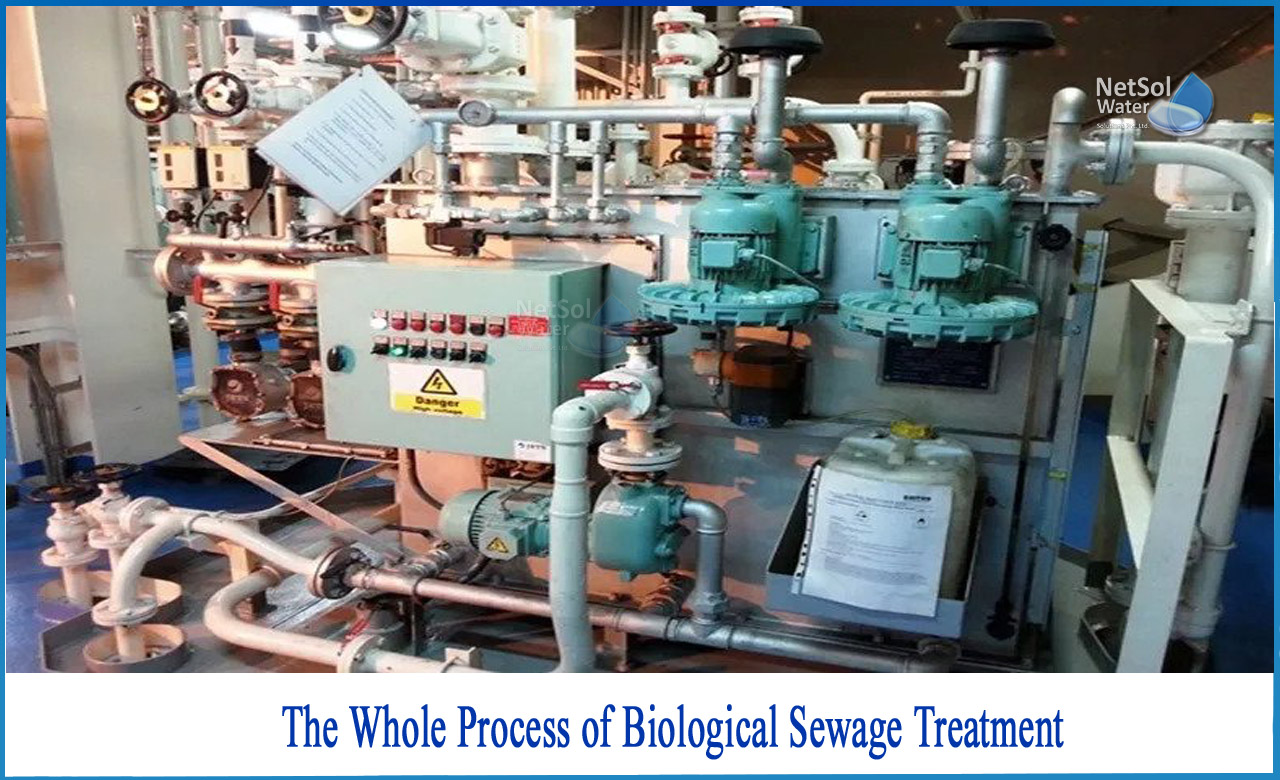Overview
While local governments treat the majority of sewage, they do so in a variety of methods.
In India, these local municipal facilities must adhere to both federal and local standards in terms of the purity criteria for the treated effluent, and while they are treating roughly the same types of human waste, their treatment methods and extent of treatment differ.
Biological sewage treatment is commonly used at some stage in the process, regardless of how municipal facilities treat their local community's waste.
What is a biological sewage treatment facility?
The techniques by which microorganisms break down and eliminate nutritious components from wastewater are referred to as biological sewage treatment. While dissolved oxygen is required for the decomposition of carbon compounds and the production of ammonia (nitrification), it is not required for the degradation of nitrate (denitrification). Biological cleaning, which occurs naturally in streams and rivers, is ultimately the technical solution.
What is the goal of biological sewage treatment plant?
The purpose of biological wastewater treatment is to design a system that allows the decomposition products to be conveniently collected and disposed of. Because biological treatment is more effective and cost-efficient than many mechanical or chemical treatments, it is employed all over the world.
Two processes of biological sewage treatment plant
Aerobic and anaerobic techniques are commonly used in biological treatment.
The term "aerobic" refers to a biological activity in which oxygen is present, whereas "anaerobic" refers to a biological process in which oxygen is not present. To obtain the best removal of organic compounds from wastewater, scientists have been able to manage and refine both aerobic and anaerobic biological processes.
Biological wastewater treatment is frequently employed as a secondary treatment technique to remove material that has not been removed following first treatment, such as dissolved air flotation (DAF). Sediments and contaminants such as oil are removed from wastewater during the main water treatment procedure.
Treatment of wastewater by aerobic bacteria
Simple septic or aerobic tanks, as well as oxidation ditches; surface and spray aeration; activated sludge; trickling filters; pond and lagoon-based treatments; and aerobic digestion are all examples of aerobic wastewater treatment procedures.
Biological treatment procedures include constructed wetlands and other types of filtrations. While the wastewater is being treated, diffuse aeration devices can be used to enhance oxygen transport and reduce smells. As beneficial bacteria and other creatures’ breakdown organic components in wastewater, aeration produces oxygen.
The membrane aerated biofilm reactor (MABR) improves the process by using 90% less energy for aeration, which is normally the most energy-intensive stage of standard biological therapy.
Treatment of wastewater by anaerobic bacteria
Bacteria are used in anaerobic treatment to assist organic material decomposed in an oxygen-free environment. One of the most robust areas of resource recovery is energy recovery, which is driven by anaerobic digestion.
Anaerobic digestion is utilised to produce biogas, which is mostly constituted of methane, in this type of energy recovery, also known as waste-to-energy. Operators can utilise it to generate energy, which will help them reach their goal of being energy net zero, or to turn waste streams into revenue streams.
Conclusion
The type of biological treatment used to treat wastewater, whether aerobic or anaerobic, is determined by a number of factors, including environmental discharge quality laws.
Additional treatment stages, including as chlorination and UV treatment, as well as a variety of filtering alternatives, like as carbon filtration, reverse osmosis, and ultrafiltration, are frequently added to biological treatments.
In addition to these biological wastewater treatment choices, Netsol Water Solution can manage creating a variety of other biological sewage treatment plants.
Netsol Water is Greater Noida-based leading water & wastewater treatment plant manufacturer. We are industry's most demanding company based on client review and work quality. We are known as best commercial RO plant manufacturers, industrial RO plant manufacturer, sewage treatment plant manufacturer, Water Softener Plant Manufacturers and effluent treatment plant manufacturers. Apart from this 24x7 customer support is our USP. Call on +91-9650608473, or write us at enquiry@netsolwater.com for any support, inquiry or product-purchase related query.



